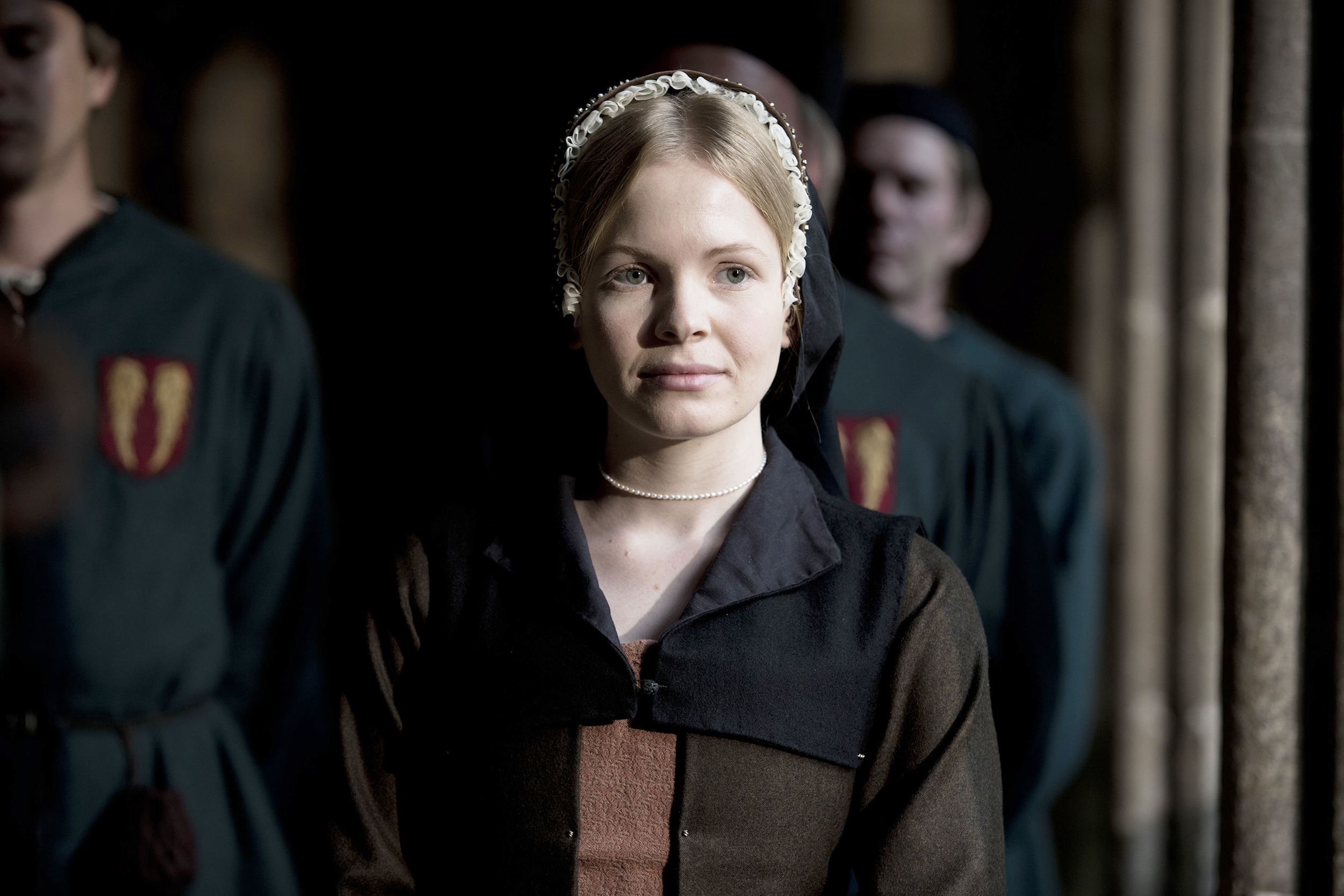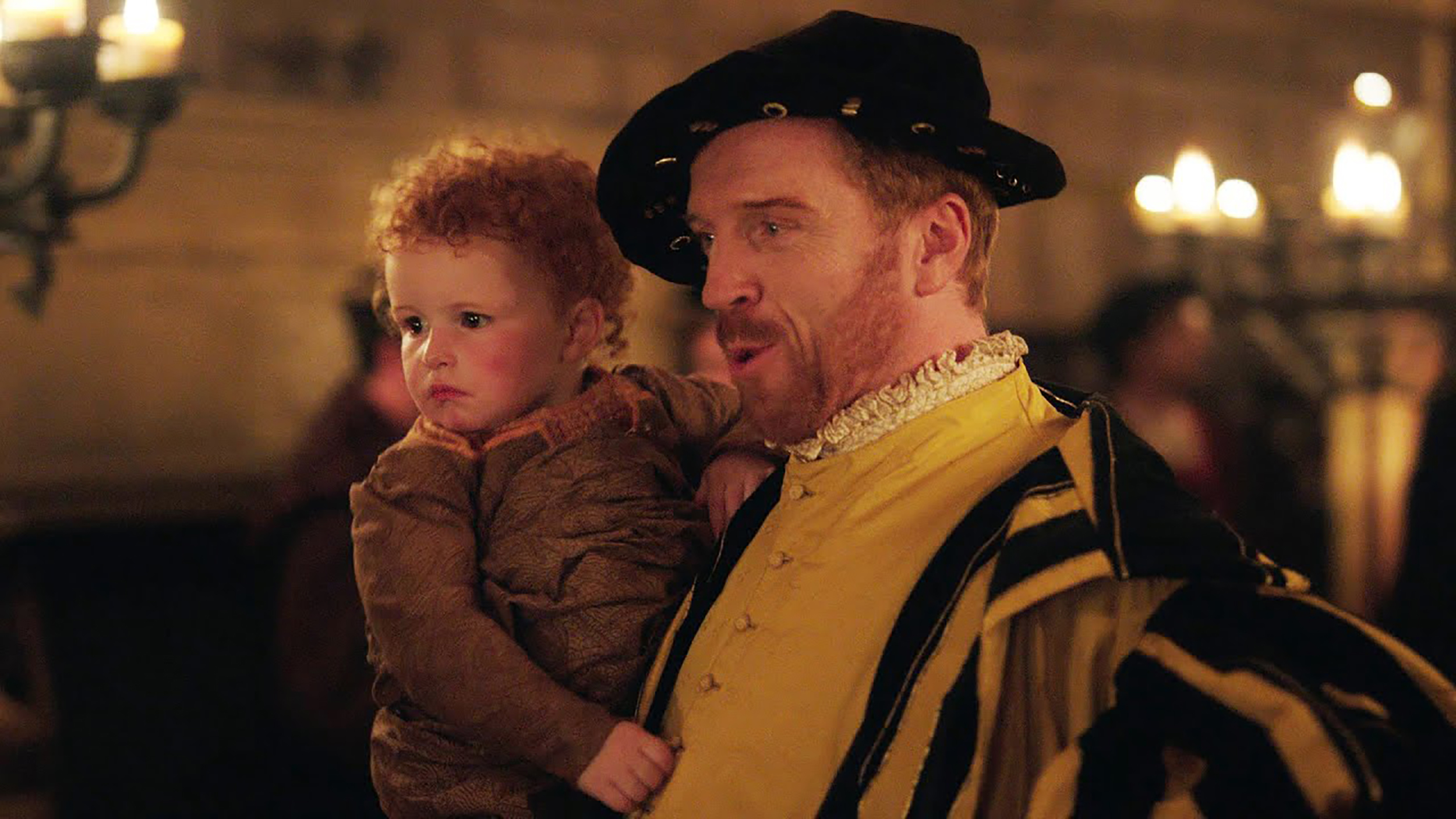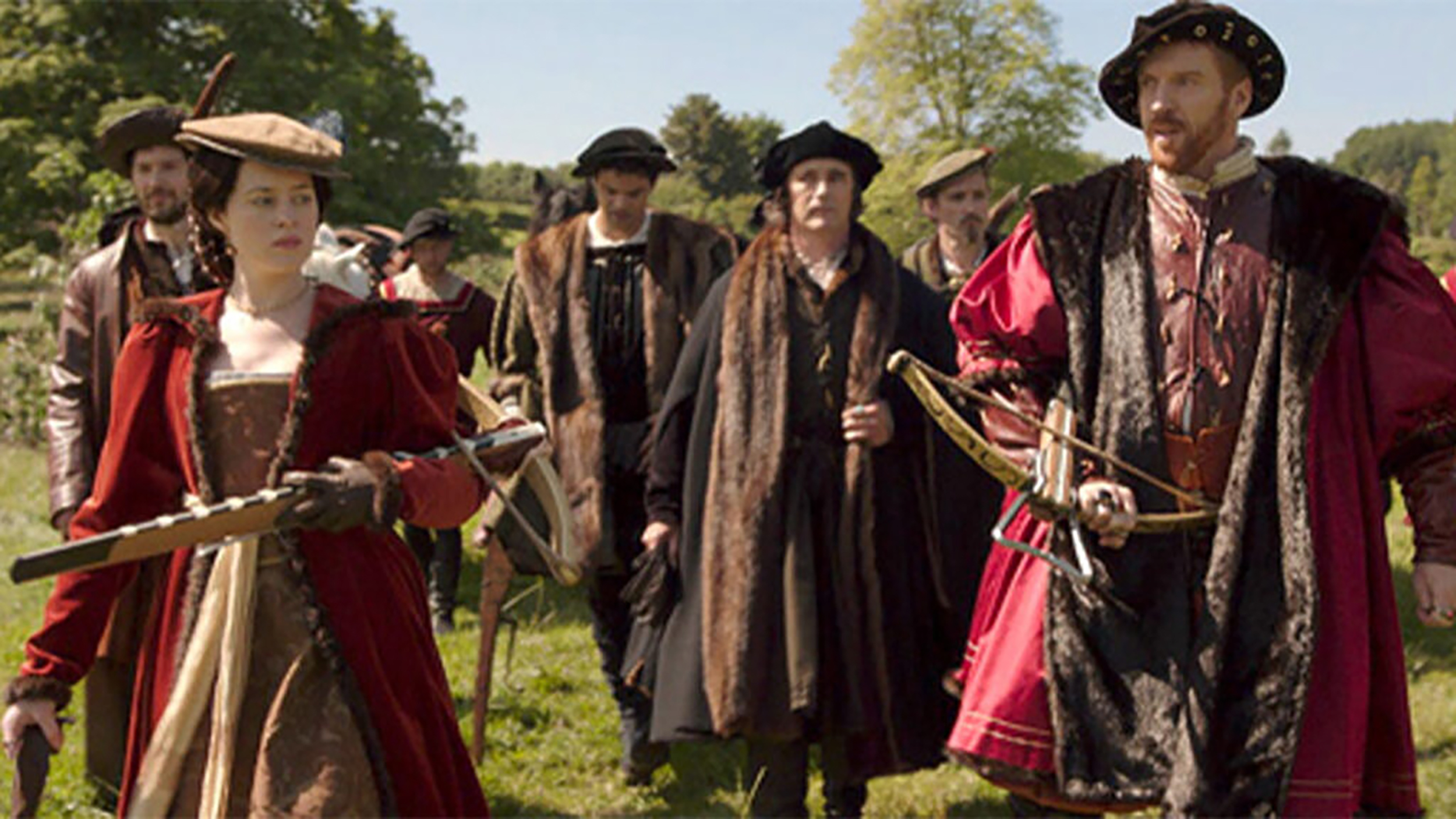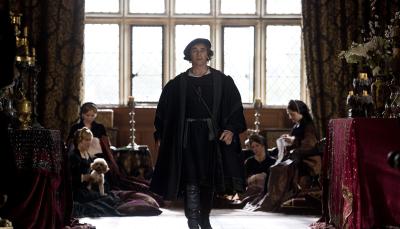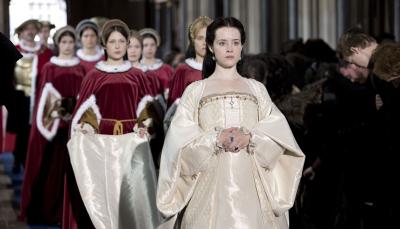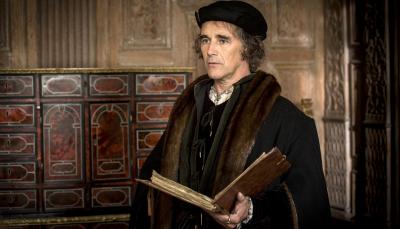'Wolf Hall's' Penultimate Episode Leaves Cromwell for the "Crows"
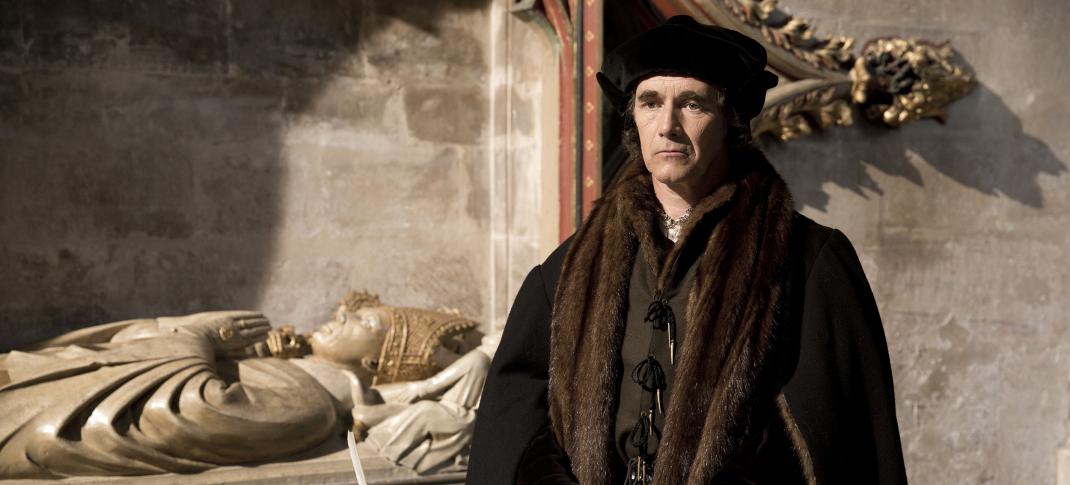
Mark Rylance as Thomas Cromwell in 'Wolf Hall' Season 1
BBC/Masterpiece
Much like William Shakespeare's history plays, Wolf Hall takes history (in this case, history that happened just before Shakespeare's time) and retells it via the sensibilities of modern authors. However, much like plays like Julius Caesar and The Henriad, the dramatic liberties novelist Hillary Mantel and scriptwriter Peter Straughan took with history are easily mistaken by the audience as an accurate account of events. Two of those liberties are at the heart of this penultimate episode of Wolf Hall; we see Cromwell change the course of history twice: once, when his desire to see Jane Seymour brings the royal party to Wolf Hall, which has unexpected consequences, and then a second time when Henry VIII dies.
Jane: "I'll get my prayer book. I'm sure I can find something that will fit the bill."
Two of those liberties are at the heart of this week's episode. The first is the conceit that Thomas Cromwell was in love with (or at least harbored a tendre for) Jane Seymour. History doesn't say he didn't, but history does not record that he did either. However, it is suggested that Cromwell's overriding desire to see Jane, especially after last week's illness, is the only reason the royal party bothered to stop at Wolf Hall, with historic consequences.
The end result is the ever-suggestable Henry, already less than pleased with his second wife's failure to carry a son to term, finds himself staring into Jane's gentle face. Before the party has left the residence, Cromwell finds himself no longer under consideration for her hand (if he ever was in the first place) by Jane or anyone else. The King now has his eye on her, and the entire family hopes she can reel in that fish — with Cromwell's advice, natch.
History tells us — (spoiler alert) — that we will soon see Henry throwing over everything in his country for Jane, much like he did for Anne before her. But before we get to that, we must contend with Mantel's other not-exactly-historically-accuate plot point this week. If this were an episode of Friends, it would be entitled "The One Where Henry VIII Dies."
Historical records and contemporaneous accounts agree on the following facts: Henry VIII was injured in a jousting accident when he was thrown from his horse, which landed on top of him, on the 24th of January, 1536. The King was unconscious for two hours, with some records claiming that he stopped breathing for up to 15 minutes. That can't be true; the human brain cannot go without oxygen for that long. In this week's episode, the series posits it was ~5 minutes (give or take) before Cromwell bodily throws himself at the King and restarts his breathing by sheer effort of will.
Modern-day science agrees that loss of oxygen to the brain for even that length of time can cause severe brain damage; that doesn't take into account that Henry also suffered massive concussive trauma. Some historians have suggested the cumulative effect of the King's jousting habit caused Henry CTE-like symptoms later in life. Some have even implied his tearing through four more wives like tissue paper over the next decade was part and parcel with the personality changes brought on by this accident.
But at the moment, all Cromwell knows is this: There is no male heir yet (though Anne is pregnant). Anne insists that "New England" will not survive without her, but the truth is it cannot survive without Henry.
It has been less than five years since the Reformation, and the Boleyn family's position at the top of the food chain is still far too precarious to make a sure bet. The family could have fought for three-year-old Elizabeth to become Queen; Cromwell could have sided with the Boleyn faction to force the issue. But his instinct in telling courtiers to get Mary out of the country proves he knows that's not a winning hand. Katherine of Aragon is in an excellent position to stage a civil war and put Mary on the throne. Chances of Elizabeth I being crowned (and keeping it) at this point in history would have been slim to none.
(Heck, a decade and one short-lived male heir later, Mary was still put on the throne before Elizabeth.)
Henry cannot die. It would be a disaster for the country. The lords run around, some losing their heads while others queue up long-held plots held in reserve for just such a crisis. Norfolk stands around pounding his chest, yelling he will be regent: "ME! ME!" Seeing the scope of the impending catastrophe, Cromwell decides the only answer is for the king to live.
In desperation, he turns around and pounds on the king's chests until Henry, startling into consciousness, breathes again. Nowhere does it say Cromwell saved Henry's life, but for dramatic purposes, Cromwell's choice to keep the King alive is the one that makes the most sense.
It's a short-lived victory. Cromwell gets no thanks from the King for his quick thinking or for keeping him from the grave. Instead, the King's behavior turns erratic. His attitude towards Anne verges on hatred, from the first time she comes to see him after the accident to her subsequent miscarriage. (Historians have theorized that miscarriage was brought on by the shock of being told her husband was dead).
Those he associates with bringing him Anne are also under fire, and Henry lashes out at Cromwell, too, accusing him of overstepping when all Cromwell is doing is setting up things to bring in the next wife, whether that be Jane or anyone else. Ever fast on his feet, Cromwell turns it into something that becomes a valuable distraction, though it does not initially play like one. The Boleyn men sit around pridefully amused to see Cromwell "put in his place," completely missing the reality that the only reason they sit at the King's hand is due to a woman he's planning to put aside, and soon.
Jane has caught his eye. All Henry is looking for is someone to give him an excuse to call this marriage to Anne a fraud - perhaps charms or spells? If at first, you don't succeed, annull, annull again. Anullment? Beheading? You say tomato, I say tomato. Let's call the whole thing a sign of Cromwell's fate.
This post was originally published May 2015. Updated 11.24.2024.
The original 2015 Wolf Hall will continue on Sundays at 10 p.m. ET on most local PBS stations and the PBS app. All six episodes are available to stream on the PBS Masterpiece Prime Video Channel and for members of PBS Passport. Wolf Hall: The Mirror & The Light will debut in 2025.

